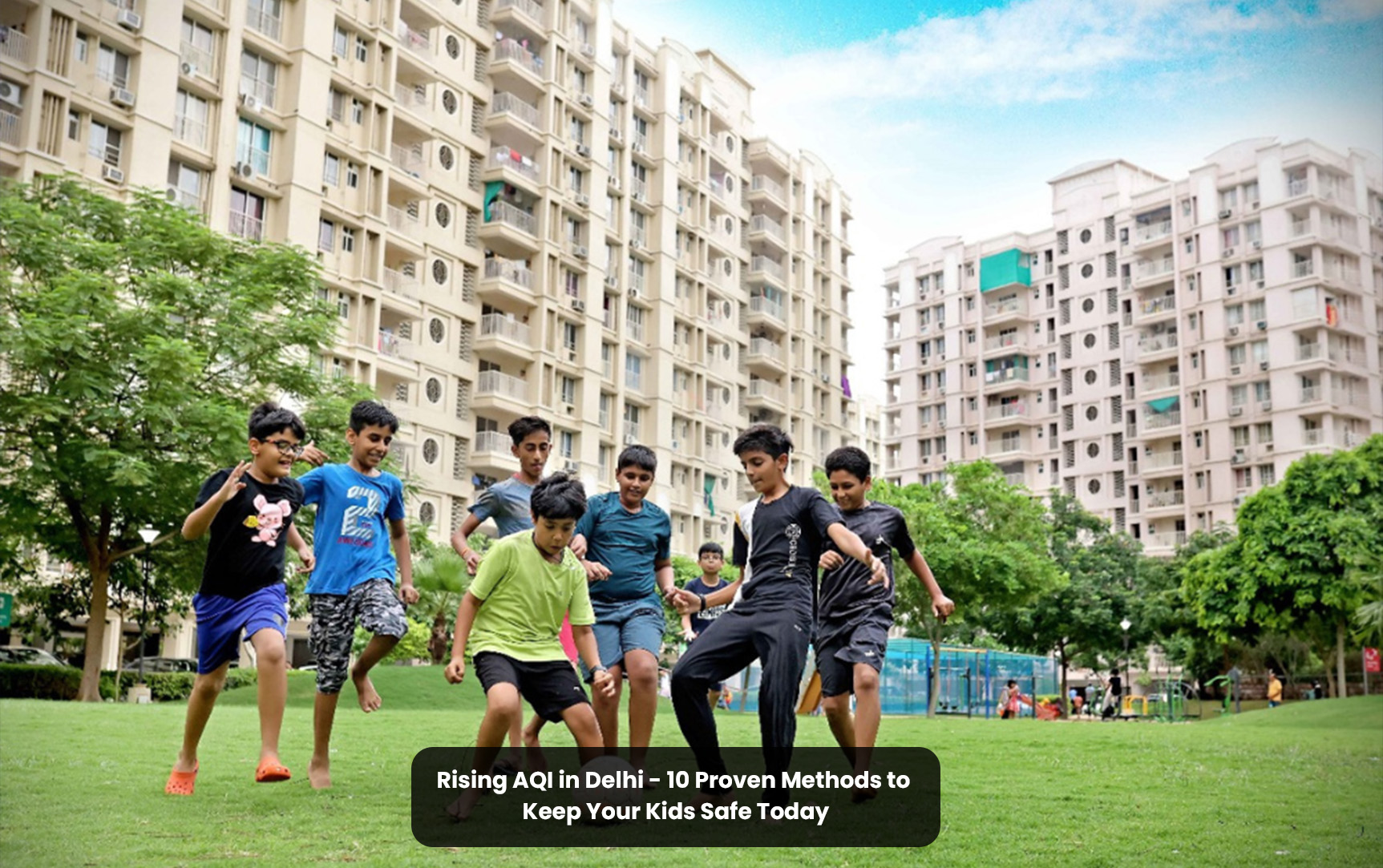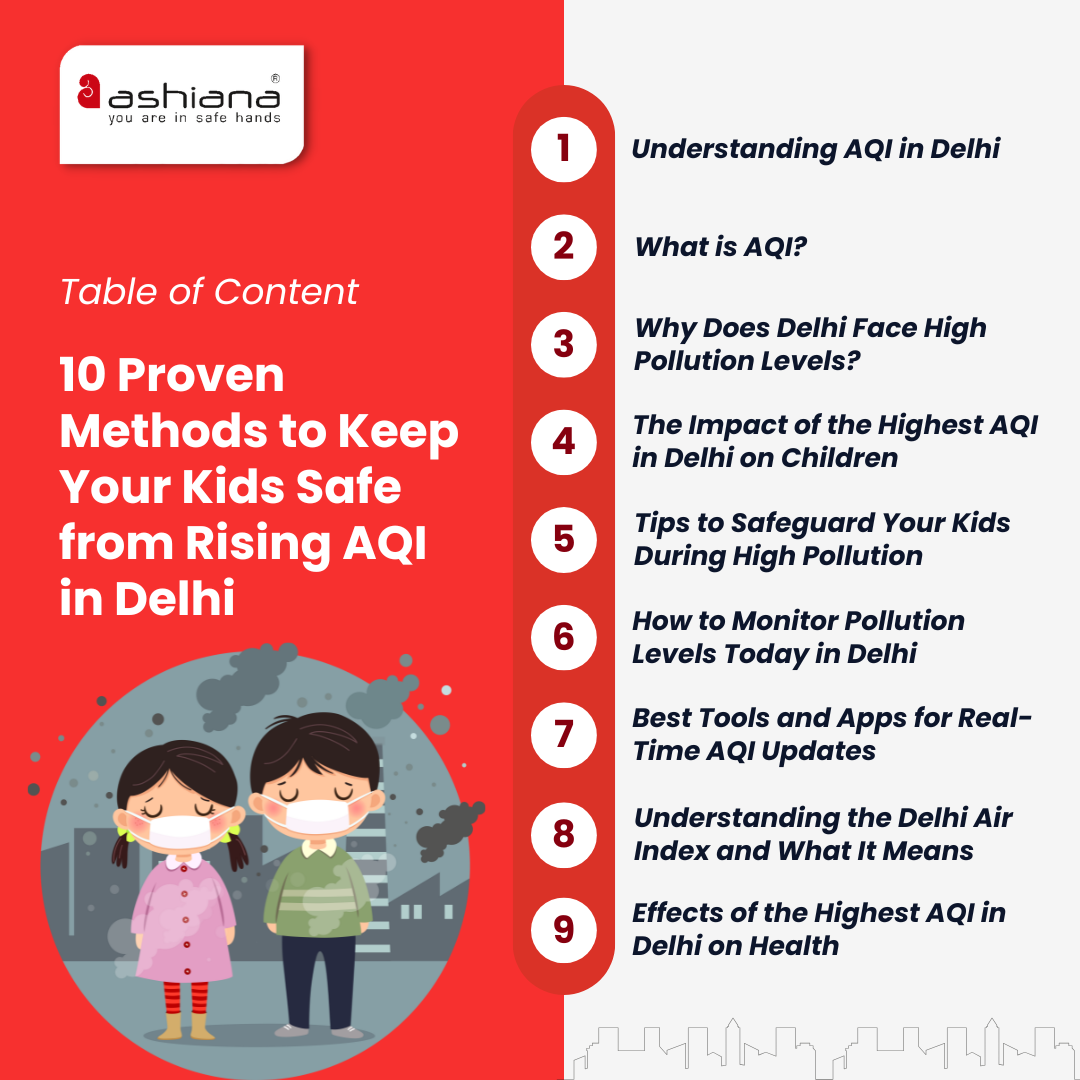



Here’s a guide for parents to safeguard their infants during this environmental crisis:
Protecting your child’s lungs from the harmful effects of air pollution is not just about reacting to the problem but proactively creating a safer environment. Simple actions like improving indoor air quality, incorporating air-cleaning plants, and using gadgets like air purifiers and humidifiers can go a long way.
The crisis extends beyond health implications, severely impacting children’s education and daily lives. A study by the Energy Policy Institute at the University of Chicago (EPIC, 2023) found that high pollution days in Delhi correspond to increased school absenteeism and reduced academic performance.
Ashiana, Ashiana Housing build homes. Homes surrounded by vast green spaces and fresh breeze. Homes cocooned in secured gated complexes. Homes where futures are forged and there are opportunities to grow. And Homes in environments brimming with healthy activity, trust and respect. At heart, we build communities with care.
Other posts by Ashiana
Join 1000+ of fellow readers. Get expert real estate knowledge straight to your inbox absolutely free. Just enter your email address below.